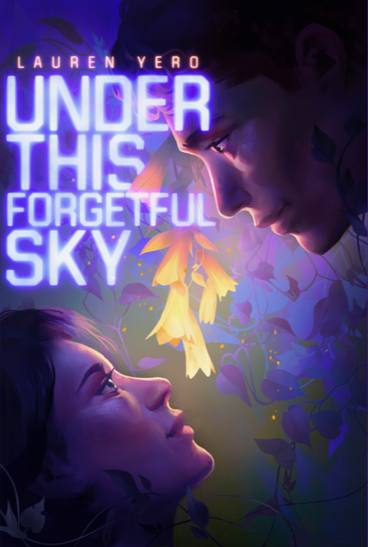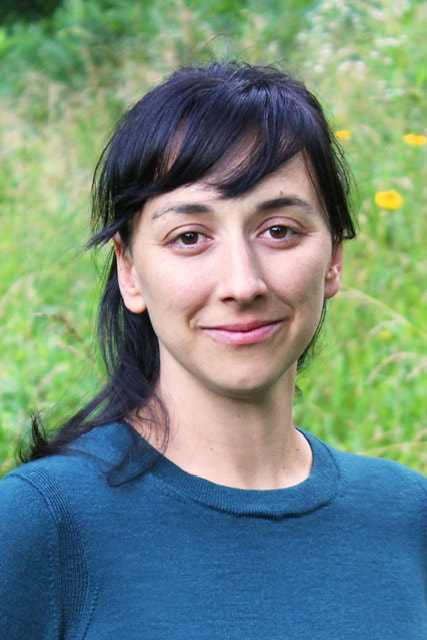|
Join us in celebrating Under This Forgetful Sky book birthday! We sat down with Musa Lauren Yero to learn all about the inspiration behind this book. But first, a little bit about this new YA book: Under This Forgetful Sky is a speculative YA story of star-crossed love and resistance in a world divided by walls. The novel follows two teens on a journey across near-future Chile as they search for a cure for a mysterious virus. On paper, they’re enemies—but, of course, it turns out to be much more complicated than that. Publishers Weekly calls it a “delicately crafty sci-fi world” and Kirkus Reviews calls it an “intricate novel [that] explores the topics of power dynamics, inequality, and revolution with nuance.” What inspired you to become a writer? I’ve wanted to be a writer for as long as I can remember. It’s one of the things about myself that’s always felt certain, even when other things about my identity were in flux. My first stories were all about animals, and I wrote them voraciously. When I won my elementary school’s “Newberry Medal” in 5th grade (with a book about a girl who infiltrates an “only boys allowed” club), I was convinced—writing was my calling! How would you describe your main character and why did you create them in this way? Under This Forgetful Sky has two main characters. There’s sixteen-year-old Rumi, who has lived his whole life inside the fortified walls of Upper City St. Iago. He has a loving grandfather and an over-protective father, but he increasingly feels restless—almost claustrophobic—within this insular life. And as a child of diaspora, his separation from his family’s culture and homeland makes him feel disconnected even from himself. Then there’s fifteen-year-old Paz from the Lower City of Paraíso. She’s rebellious, fearless, and she’s spent her whole life resenting everything about the Upper City that’s plagued her community since before she was born. When she unexpectedly crosses paths with Rumi, she realizes she finally has a chance at exacting the revenge she’s dreamed of her entire life. The question is: will she take it? These two characters are so, so different from each other, but they’re each an expression of different emotions and reactions I’ve had to the state of our world and its future. I’ve definitely experienced some of Rumi’s inner conflict and anomie around his own privileged existence. But I’ve also felt Paz’s outrage at the people in power who built such enduring, oppressive systems before she was even born. I gave my characters these traits and experiences in part as a way to better understand them myself. Can you share your path to publication for this book? I got the idea for Under This Forgetful Sky over a decade ago and wrote the first draft in a matter of months. But at that time, I didn’t’ feel ready to start sending it out to agents. I’m a perfectionist to a fault, so I spent years sharing the manuscript with critique partners, revising it, putting it away in drawers, getting discouraged, getting inspired, pulling it out again, etc. Then, during the first year of the pandemic, I decided I was finally ready to try submitting it, so I started querying a handful of dream agents. I got some rejections and some requests over the next few months, and then one day one my now-agent sent me an email to say that she’d stayed up all night reading my manuscript and that she wanted to represent me! Together she and I put together a list of editors, and in our first round of submissions we got an offer from Sophia Jimenez at Atheneum, a children’s literature imprint of Simon & Schuster. Working with Sophia on this book has been an absolute dream! What message are you hoping young readers will take away from this experience? I hope that readers come away from this book with a renewed sense of hope for the future. There are a lot of good reasons for young people to look at the world and feel worried about what’s to come—and readers should know before diving into Under This Forgetful Sky that the book doesn’t shy away from these scary realities. But at its heart, the novel tells a story of the power and beauty of human connection and solidarity in the midst of scary things like climate change and systemic inequality. What three recommendations would you give writers just starting out?
0 Comments
Leave a Reply. |
Las Musas SpeakWelcome to our blog! Archives
July 2024
Categories
All
|



 RSS Feed
RSS Feed